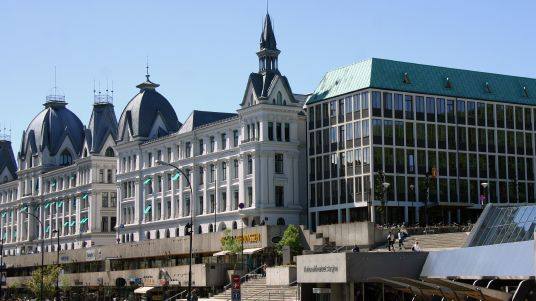Foreign Ministry of Norway - Conflict over Georgia’s occupied regions must not be forgotten
“The conflict over Georgia’s occupied regions must not be forgotten. Eleven years on, Russian troops remain on Georgian soil and the conflict is still unresolved. Once again we call on Russia to comply with the August 2008 ceasefire agreement and pull its forces out of Georgia,” Minister of Foreign Affairs of Norway Ine Eriksen Søreide wrote on Twitter in connection with the 11th anniversary of the August war.
“On the night between 7 and 8 August 2008, hostilities broke out in the Georgian region of South Ossetia. Russian forces intervened on the side of the separatists and took control of areas even beyond the region of South Ossetia. The ceasefire agreement reached on 12 August 2008 included the requirement that Russian troops withdraw from the occupied territories. This requirement has not been met. Instead, Russia has expanded and consolidated its military presence in the two occupied regions of Abkhazia and South Ossetia. It has recognised the two regions as independent states and has signed ‘treaties’ with these two parts of Georgia, integrating them more closely into Russia’s governance structures.
International talks on humanitarian and security-related aspects of the conflict, co-chaired by the OSCE, the EU and the UN, are held in Geneva on a regular basis. However, the status of the two regions is not on the agenda of these talks. For some time, one key aim has been to secure a commitment by the parties not to use force. The political leadership of Georgia has made such a commitment, but the occupied regions and Russia have not yet done so.
The human rights situation in the two regions is serious, particularly for the few ethnic Georgians still living there. International humanitarian actors and human rights mechanisms must gain unrestricted access to these regions.
Since 2003, Georgia has implemented important reforms in many sectors. In 2014, the country concluded an Association Agreement with the EU committing it to further reforms. Georgia is also seeking to further develop its partnership with NATO, with membership as its ultimate goal.
‘Our support for Georgia’s sovereignty and territorial integrity remains unchanged. We also support Georgia’s right to chart its own course. So-called ‘spheres of influence’ have no place in the 21st century,” said the Minister.
“Georgia is an important and valued partner for Norway. We want to go on deepening and broadening our bilateral cooperation and to support Georgia’s reforms and continued integration into European and Euro-Atlantic cooperation structures. Our newly established embassy in Tbilisi will contribute to this,” said Ms Eriksen Søreide.

